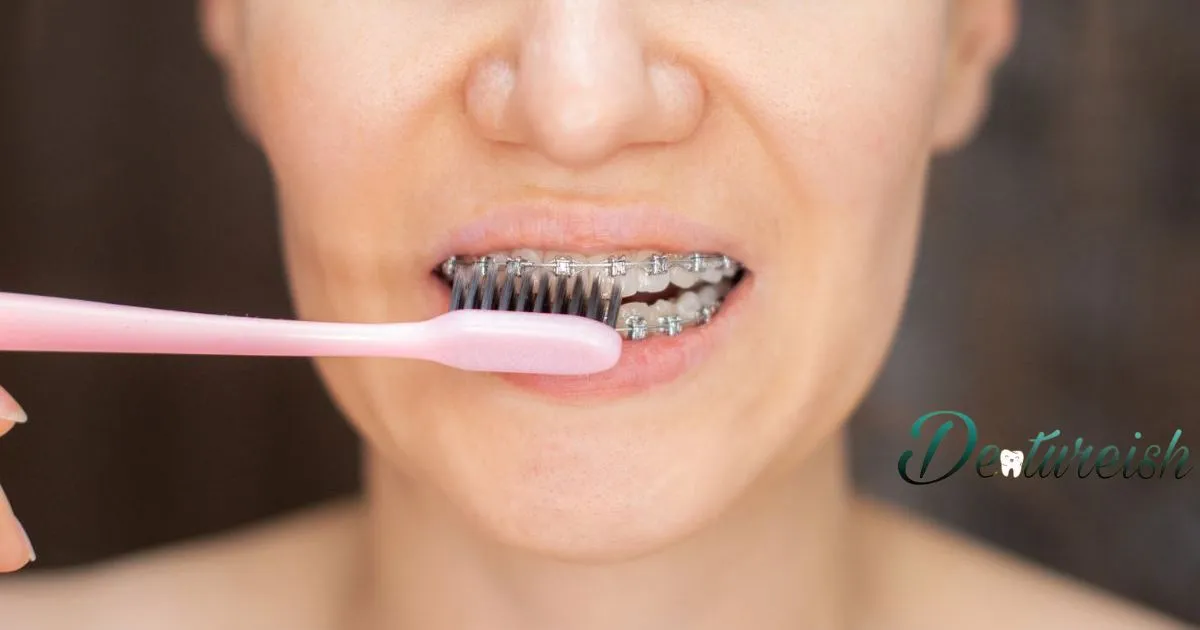Wearing dentures for the first time can be a big adjustment. Whether you are getting partial or full dentures, there are some common things to expect as you get used to having artificial teeth.
When dentures are first put in, they may feel awkward and bulky in your mouth. Your speech may be temporarily affected while your tongue and cheeks learn the new positioning. Don’t worry – this is very normal! With practice, you will adapt to talking and eating with dentures. Sore spots are also common initially. Your dentist will make adjustments to relieve any pressure points that crop up.
Within the first couple weeks, you will progress through an adaptation period. During this time, your saliva production and tongue motion will get conditioned to the dentures. As the fit improves, you’ll find the stability and comfort levels of your dentures enhancing. Over time, dentures should begin to feel more natural.
My New Dentures Are Killing Me
Getting used to new dentures brings discomfort. The plastic and metal rubs against your gums. This causes sores and pain. Speaking and eating also feel awkward with false teeth.
Don’t worry. The pain and problems will improve over time. Your mouth just needs to adjust. See your dentist for any persistent sore spots. They can relieve pressure points. Proper care will help your dentures feel more comfortable. Soon, you will have no trouble speaking or chewing.
Fitting and Delivery Appointments
The process of getting fitted for dentures takes multiple appointments and adjustments by your dentist before the final set is ready. Here’s a high-level overview of what to expect at key appointments:
Initial Consultation
- Examination of your mouth, existing teeth, and needs
- Discussion about options (partial/full dentures)
- Instructions on any tooth extractions or other preparatory steps
- Talk through the overall process and timeline
Impressions Appointment
- Dental impressions taken of your jaws/ridges
- “Bite registration” taken by biting down on special material
- Try-in of temporary “immediate dentures” if extracting remaining teeth
Wax Try-In
- Test drive wax-molded trial dentures for fit
- Identify any areas causing discomfort for adjustment
- Verify shape, size, color, and bite alignment
Delivery Day
- Get familiar with inserting/removing final dentures
- Receive care instructions and cleaning supplies
- Schedule follow-up check-up and adjustment visits
First Time Denture Wearer Problems
| Problem | Description |
| Discomfort | The mouth needs time to adjust to having dentures. Sore spots and rubbing can cause general discomfort at first. |
| Difficulty eating | Chewing and biting ability is decreased with new dentures. Soft nutritious foods are easiest to manage initially. |
| Changes in speech | Talking requires new tongue positioning which leads to slurred words or lisping at the start. |
| Self-consciousness | Many feel initial embarrassment about smile changes or oral function. Confidence typically returns over time. |
| Excess saliva | Having a foreign object can increase saliva flow causing gagging or extra spit. This usually resolves within a couple weeks. |
| Cleaning challenges | Learning proper cleaning and soaking habits is important to avoid stains, bad breath, and irritation. |
Initial Feel and Comfort Level

At first glance, new dentures probably won’t feel like the natural teeth you’re used to. It takes most patients at least a few weeks to adapt. Here’s what to expect regarding initial comfort:
Strange Fullness in Mouth
After being toothless even temporarily, having a full set of teeth again can feel bulky and overwhelming in your mouth at first. As you get used to the shape and size, this sensation will diminish.
Period of Soreness
Don’t be surprised if your gums feel tender or develop a few sore spots as you transition to wearing dentures full-time. This is normal, but let your dentist know right away about any persistent rubbing or pressure.
Increased Saliva Flow
If you’re struggling to remove lower dentures that are stuck, it’s important to understand that the presence of a foreign object in your mouth can stimulate additional saliva production, leading to extra spit or even a gagging reflex initially. Your saliva flow should regulate after the “newness” wears off.
Awkward Speech and Chewing
You’ll speak with a slight lisp at first and biting/chewing will feel off until your muscles and motions adapt. Don’t get frustrated. With daily wear, your coordination and speech clarity will greatly improve within a couple weeks.
How To Remove Dentures For The First Time
Removing dentures for the first time takes patience. Fill a bowl with water before starting. This protects them if dropped. Use your fingers to loosen upper dentures gently. Press down where they meet your gums. For lowers, place thumbs on both sides. Gently rock them side to side while pulling down.
Removing dentures gets easier with practice. Take your time and be gentle. Try not to drop them as you remove. Place them in the water right away if they fall. Clean thoroughly before storing overnight. Always give your gums a rest without dentures each night. Proper care keeps you comfortable.
Caring for Your New Dentures
To keep your dentures functioning properly and comfortable in your mouth, be sure to incorporate proper hygiene and maintenance habits right away:
- Remove and Rinse After Eating: Take out dentures after meals to avoid trapping food particles underneath that can cause irritation and bad breath. Rinse thoroughly before gently brushing to remove debris.
- Soak Dentures Overnight: End each day by soaking dentures in a denture cleaning solution to keep them free of stains and bacteria. Rinse again before inserting back in your mouth the next morning.
- Brush Your Gums: Even without teeth, it’s important to gently brush your gums daily to stimulate circulation and keep tissue healthy.
- See Your Dentist Regularly: Schedule follow-up appointments every six months and always promptly report any rubbing, looseness, cracking or other problems needing adjustment.
Tips For First Time Denture Wearers
New dentures feel awkward. Speak out loud often to adapt your speech. Read books or articles aloud. This strengthens your tongue muscles quickly. Also chew soft foods to relearn biting motions. Hard foods can make dentures rub and cause sore spots right away.
Clean dentures twice daily. Use a denture brush and paste to remove plaque. Soak them in a cleaner solution overnight too. This prevents stains and bacteria buildup. See your dentist every 6 months. Schedule adjustments for any persistent rubbing or discomfort. Proper care makes dentures comfortable.
Adjustment Period and Long-Term Outlook
Getting used to dentures is a process requiring patience and perseverance. With daily wear, the initial foreign sensation gives way to a more normal, comfortable fit. Here’s what to expect long-term:
Mouth Toughens Up
The skin inside your mouth will adapt and toughen within about two weeks of wearing dentures all day, every day. This makes them rest more naturally against your gums.
Chewing Ability Improves
Don’t expect to bite into a juicy apple right away. As your jaw and facial muscles strengthen over the first couple months, you’ll regain the ability to comfortably eat harder foods. Soft, nutritious foods are best initially.
Speech Normalizes
Pronouncing words clearly is difficult with new dentures but making a concerted effort to read out loud for a little while each day will help retrain your lips, tongue and cheeks. Friends and family will hardly notice a difference within a month or two.
Denture Comfort Increases
Through requested adjustments during follow-up appointments and your mouth’s continued adaptation, rubbing and pressure points dissipate. The personalized fit and stability improve so that dentures ultimately feel like part of you.
Confidence Grows
Many new denture wearers experience initial self-consciousness about their smile and oral function. But increased comfort, ability, and that bright, even look you’ve regained will make you proud to smile bigger and wider again.
How To Wear Partial Dentures For The First Time

New partial dentures require an adjustment period. Start by only wearing them for a few hours at first. Slowly increase the time you wear them each day. This allows your mouth to adapt gradually. It prevents extreme discomfort or sore spots from developing.
Also practice clear speech daily. Read out loud for short periods. This strengthens muscles needed for talking with partials in. Chew soft nutritious foods initially as well. This retrains your biting motions correctly. Take proper care of partials too. Brush gently and soak overnight. See your dentist promptly for any persistent rubbing or irritation.
Frequently Asked Question
What causes initial discomfort with new dentures?
The plastic and metal rubbing against your gums can cause general soreness and irritation at first.
Why is eating difficult at the start?
Your chewing motion and bite force is decreased as your mouth gets used to the fake teeth, making chewing more challenging.
How long might speech issues last?
Talking requires new tongue positioning, leading to slurring or lisping for the first couple weeks until you adapt.
What increases saliva flow initially?
The presence of a foreign object can overstimulate salivary glands, causing excess spit or gagging that later subsides.
How can dentures irritate your gums?
Pressure points, inadequate cleaning, and leaving them in 24/7 allows food, bacteria, and fungus to accumulate, inflaming tissue.
Conclusion
Getting used to dentures brings an adjustment period. Discomfort, changes in speech, and eating challenges are common at first. But your mouth will toughen up over time. Your bite force and coordination also improve with daily wear. Proper cleaning and care makes a big difference too.
Within a few weeks, most can eat harder foods again. Speech normalizes as well. Follow-up adjustments relieve any rubbing. Be patient through the process. Soon dentures will fit comfortably and you’ll smile confidently again.

